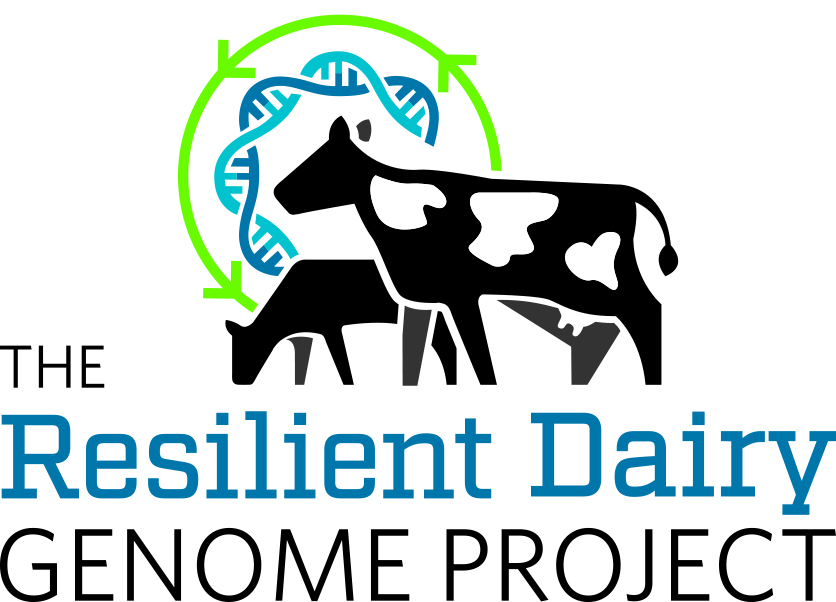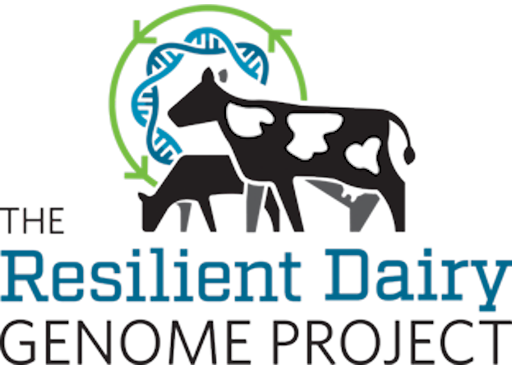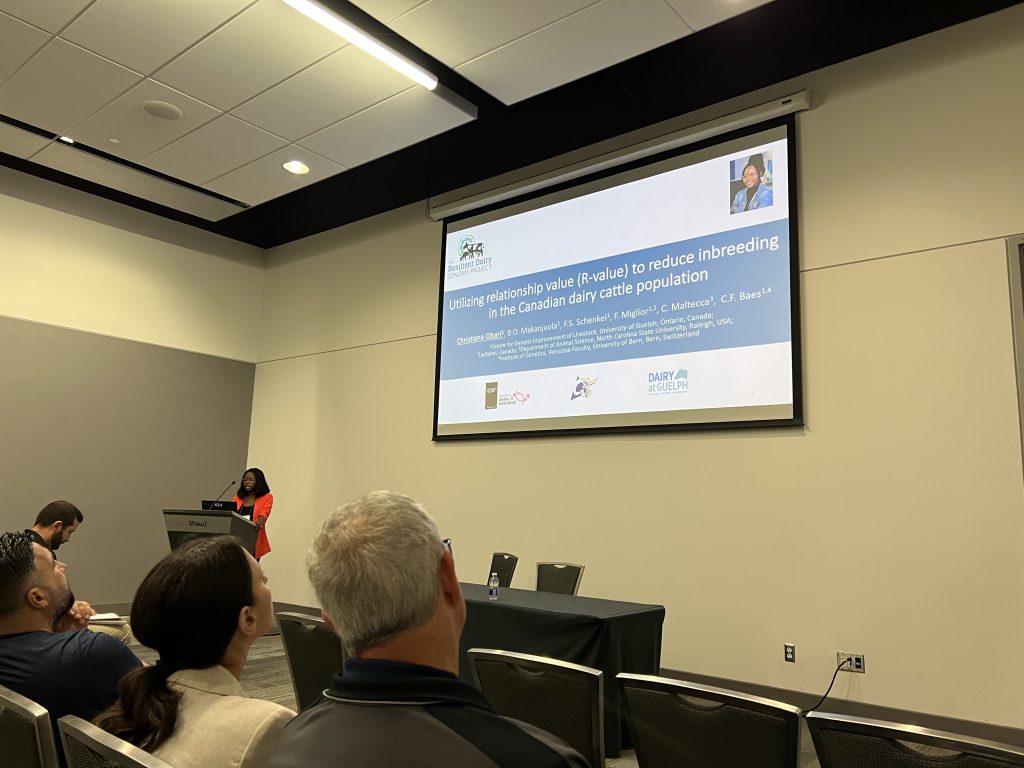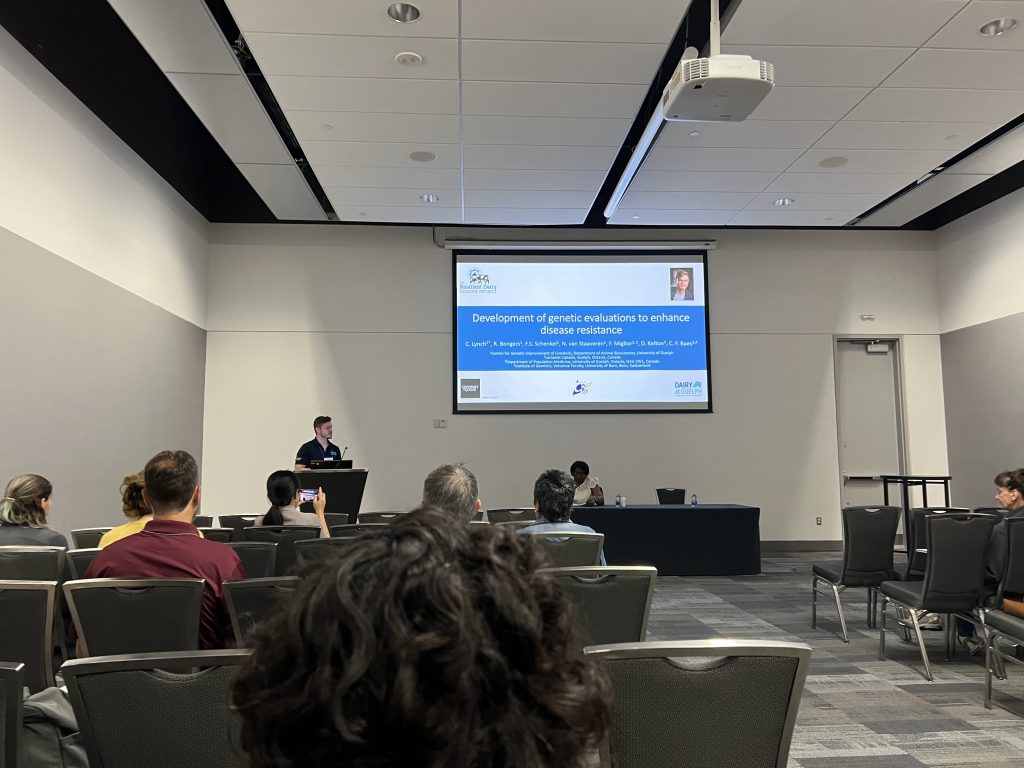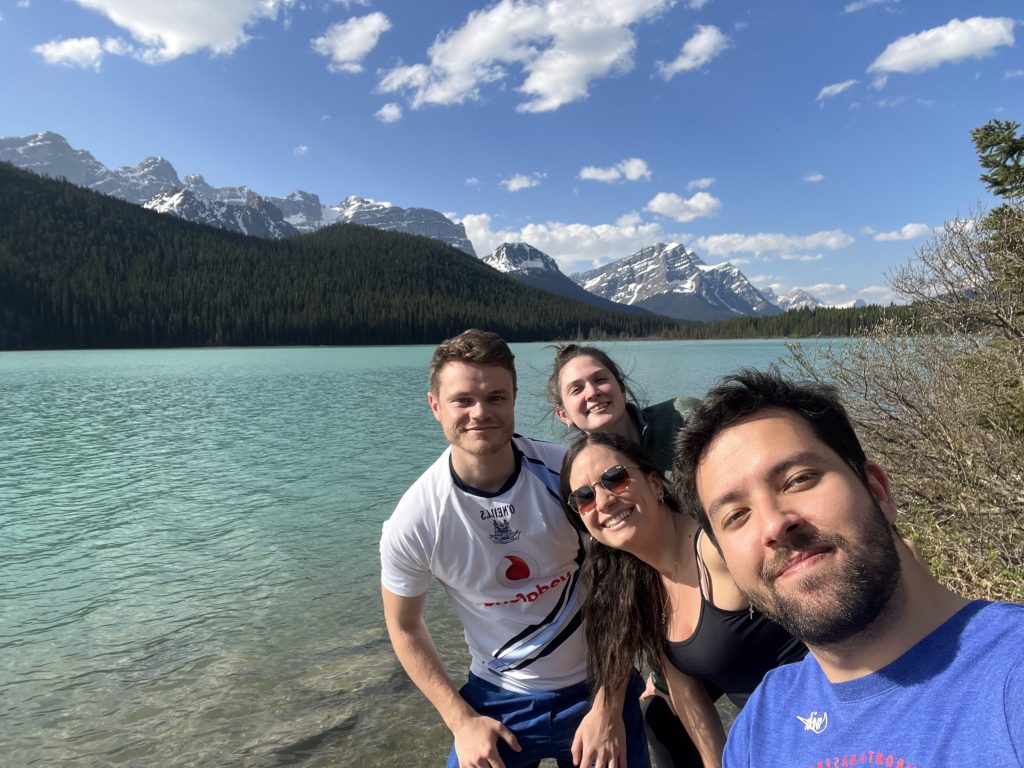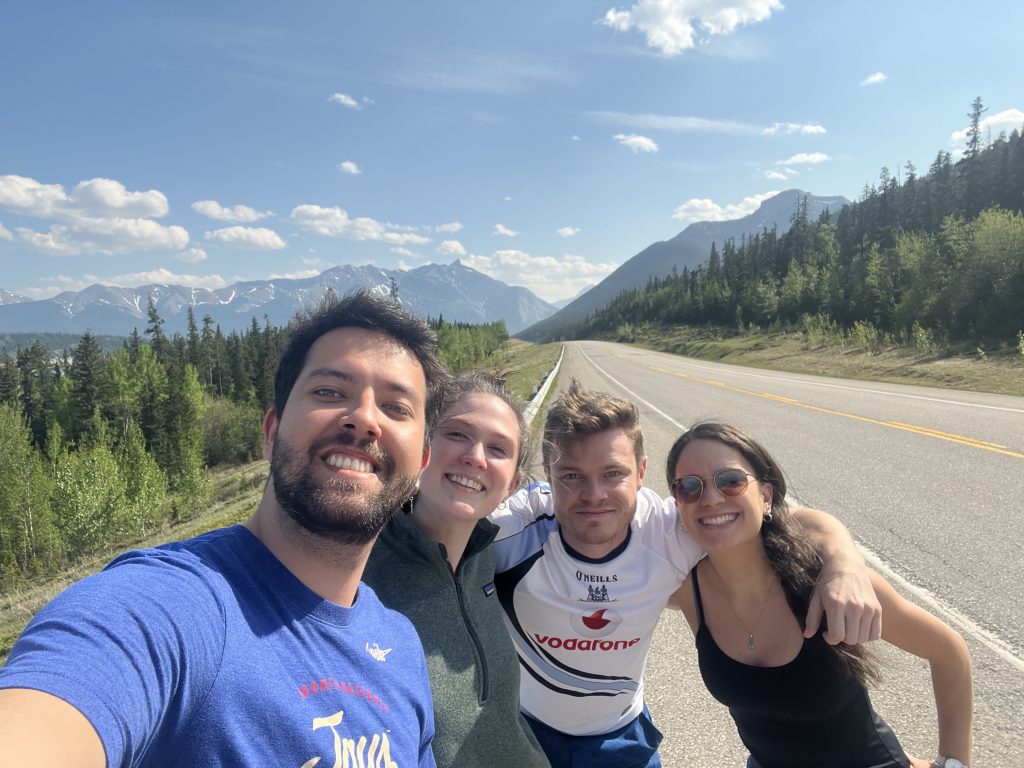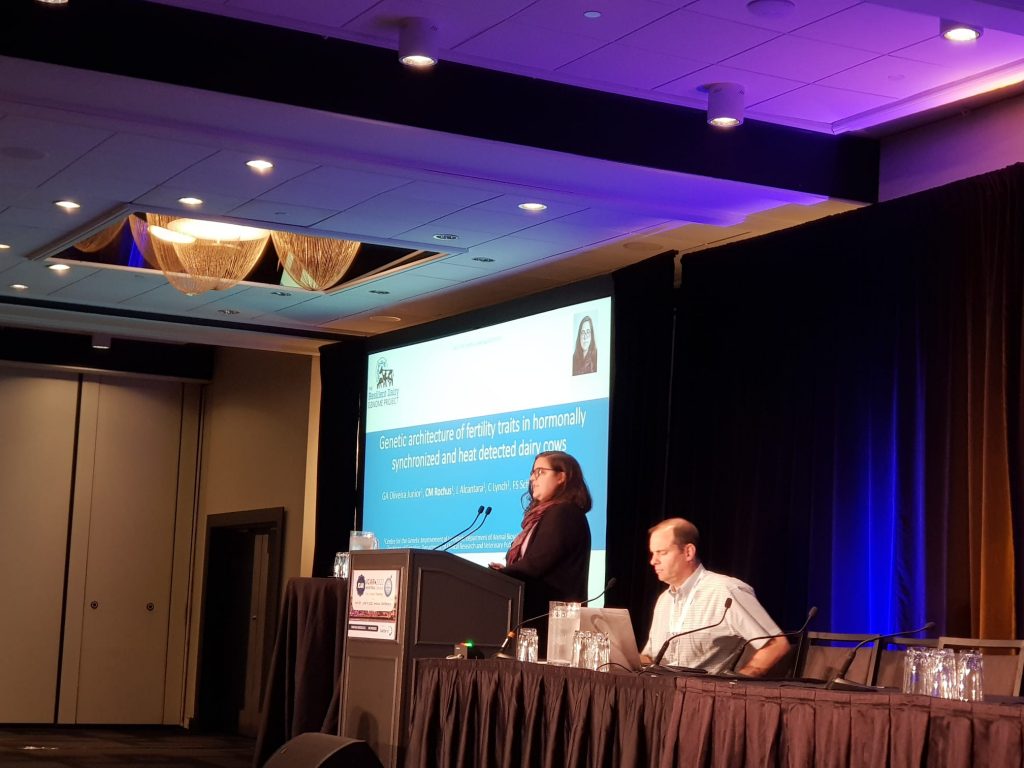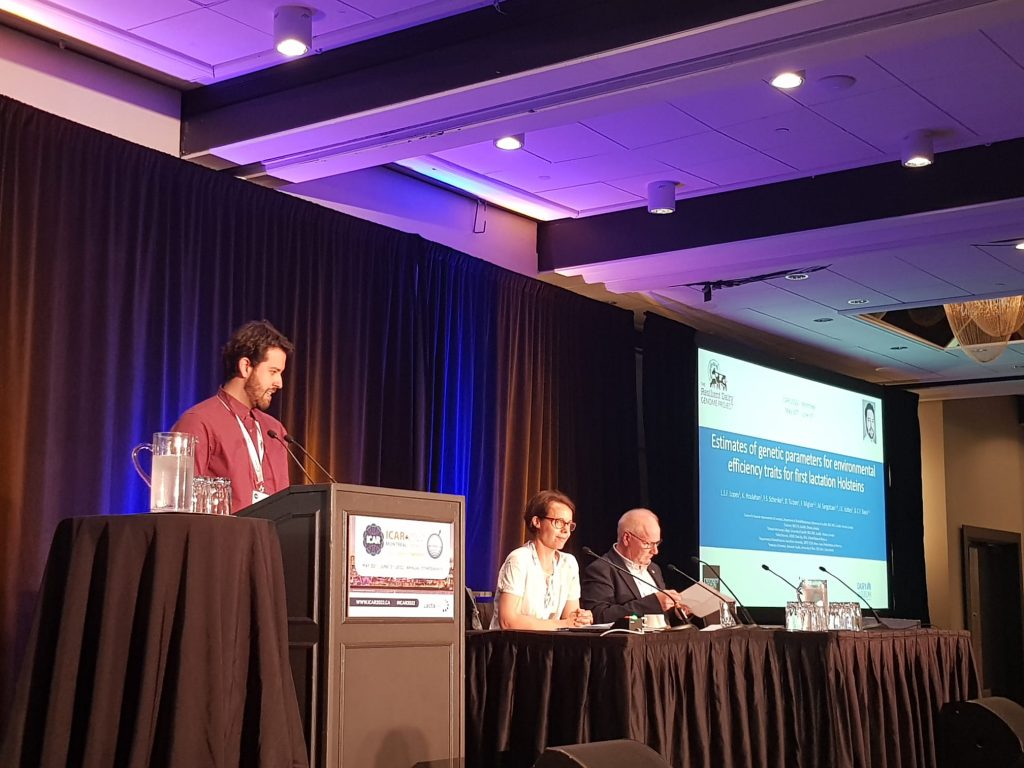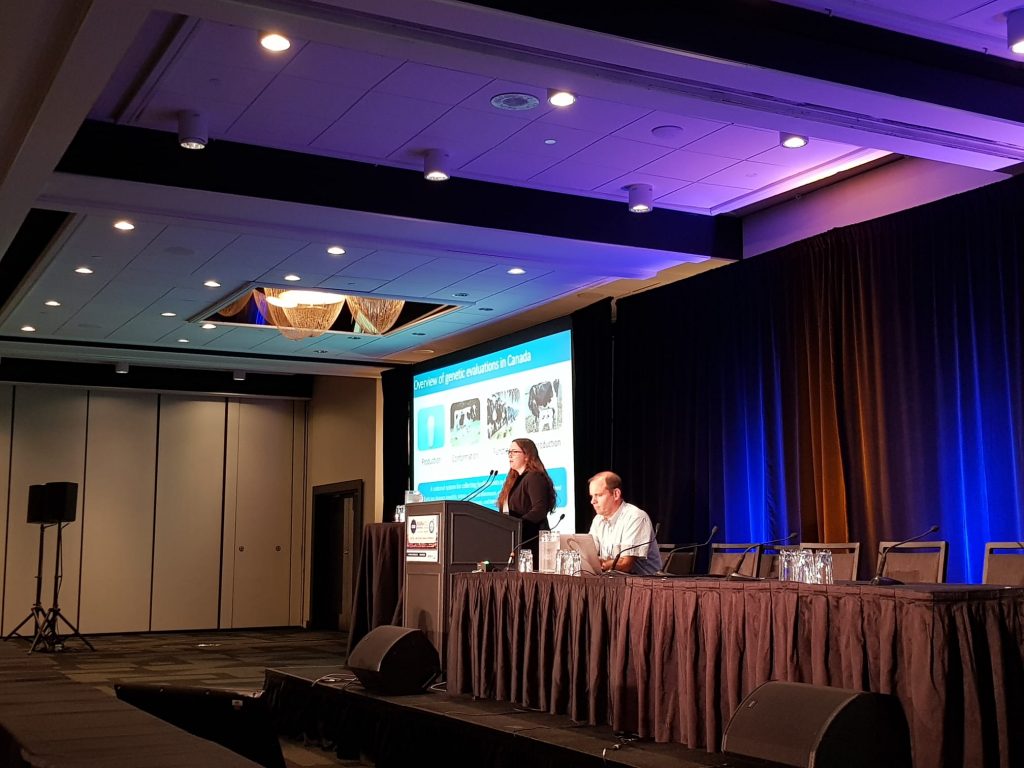03 November 2023
By Ella Dodd and Gabby Condello
The RDGP group was excited to learn that the ADSA Annual Conference would be hosted in our backyard in the charming city of Ottawa, Ontario. In June, a large group of participants made the drive up to Ottawa, including Ph.D. candidates Ella Dodd, Colin Lynch, Ivan Campos, and Christiana Obari, MSc. students Gabriella Condello and Kelli Sokoloff, along with Research Associate Dr. Stephanie Lam and Post Docs Dr. Saeed Shadpour and Dr. Victoria Asselstine.
During the poster sessions, our newer students had the opportunity to introduce their projects and explain their significance while Post-Docs were able to present results of their research. Kelli outlined her meta-analysis which seeks to understand the level and impact of inbreeding in dairy cattle, sheep, and goats. Gabriella’s study delved into the genetic factors behind the neuromuscular disorders of crampy and paresis in dairy cattle. Ella proposed a study to shed light on how heat stress affects fertility and estrus expression in dairy cows. Post-Doc Saeed presented estimated genetic parameters for a novel method of predicting methane production in dairy cattle from milk mid-infrared phenotypes. Finally, Post-Doc Victoria discussed using the milk somatic cell transcriptome to classify residual feed intake in dairy cows.
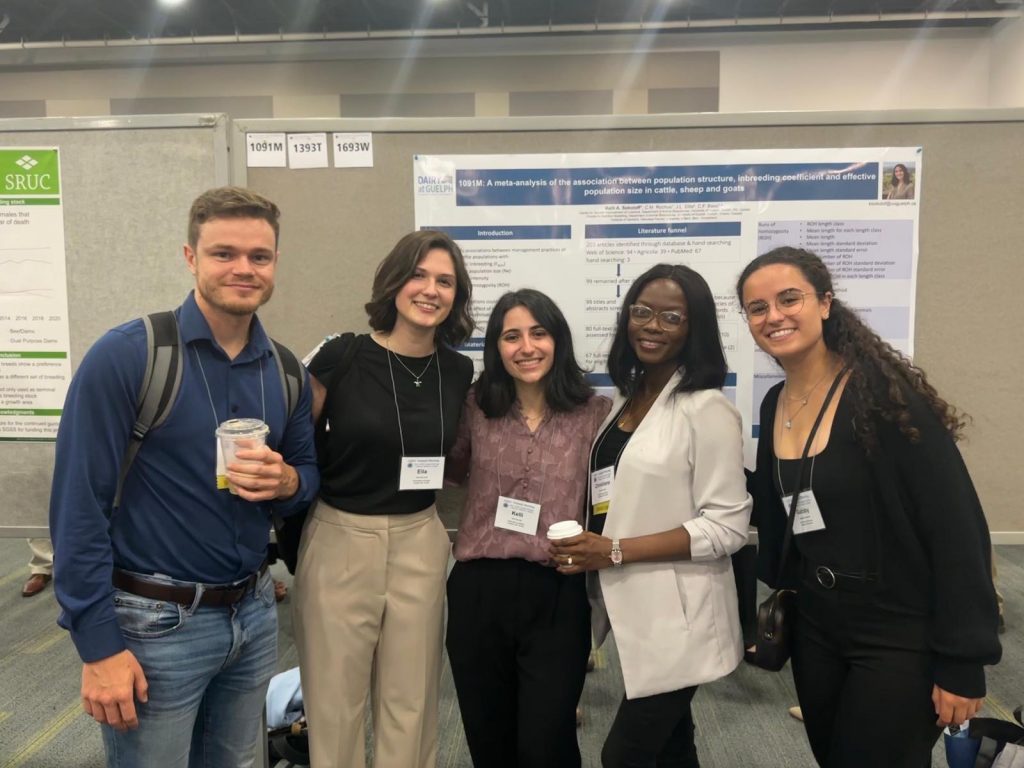
This conference also featured engaging presentations from our students that highlighted the results of various studies and their potential applications in the dairy industry. Colin led a discussion on genetics of health traits including calf diseases and leukosis. Christiana introduced a novel approach that utilizes genomic information to assess inbreeding levels in Canadian dairy cattle. Ivan presented a sophisticated model for understanding the effects of heat stress on dairy production, comparing classification of environmental conditions as ecozones compared to regions. Post-Doc Victoria spoke on identifying functional SNPs and INDELs associated with mastitis in dairy cows. Finally, Research Associate Stephanie described the identification and validation of functional candidate genes associated with pregnancy status in dairy cows.
The ADSA Annual Conference 2023 was not only a platform for showcasing research but also a place for discussion and networking. Attendees gained valuable insights into the projects of their peers, exchanged ideas, and discussed future directions. The conference was a wonderful example of the collaborative spirit of the dairy research community and the common goals we are working towards. This year’s ADSA conference brought together a diverse group of dairy researchers who shared their knowledge, findings, and aspirations for the industry. We look forward to attending next year’s conference and providing updates on the RDGP project.
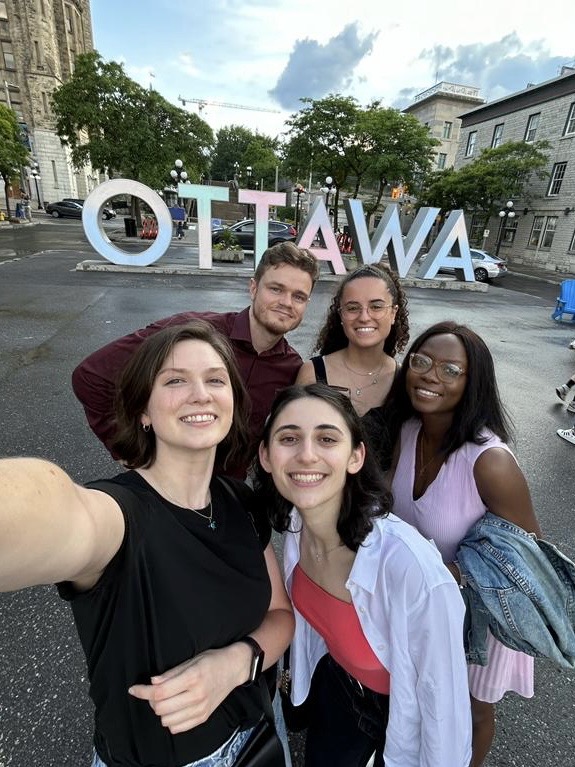
13 October 2023
By Lucas Lopes
In May of this year, PhD students Ella Dodd, Colin Lynch, and Lucas Lopes, along with Post-Doctoral Researcher Dr. Isis Hermisdorff joined project leader Dr. Christine Baes and project manager Dr. Emily Leishman at the RDGP Research Oversight Committee convened in Edmonton, Alberta. This meeting was held to provide critical updates on the project’s status and future goals across its eight activities. Students Ella, Colin and Lucas and Post-Doc Isis prepared posters summarizing the progress and findings of Activities 1 to 4 for the Research Oversight Committee.
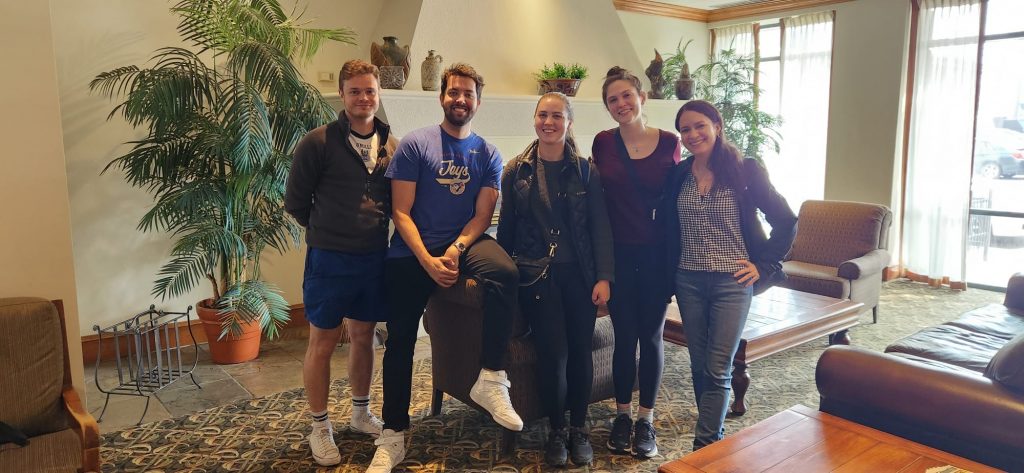
Ella’s poster focused on Activity 1, closer-to-biology fertility. She covered correlation and physiological studies that explored estrus duration, estrus strength, anogenital distance, plasma progesterone, and size and position score of the reproductive tract. Ella also shared genetic parameter estimates for size and position score and the results of a genome scan for gametic incompatibility.
Colin provided insights into Activity 2, focusing on enhanced disease resistance. He detailed the timeline of data collection and analysis across traits like calf diseases, fertility disorders, Johne’s disease, Leukosis, and neuromuscular disorders. Colin addressed challenges faced in this area and the potential industry applications of their findings.
Lucas discussed the hot topic of feed efficiency and methane reduction within the dairy industry for Activity 3. He presented genetic parameters for methane efficiency, feed efficiency, rumination time, and calf feed efficiency. Lucas highlighted the successful integration of these parameters into Canadian selection indexes and outlined future directions for this activity.
Dr. Isis Hermisdorff addressed Activity 4, emphasizing the integration of results from Activities 1, 2, and 3. She discussed the plan to estimate genetic correlations among resiliency traits and between these traits and economically important traits. Additionally, Isis explored the interaction between resiliency traits and environmental factors, particularly the effects of heat stress.
This meeting provided a unique opportunity to witness the inner workings of a major research project and gain insights into its progress and challenges. The meeting also facilitated connections with esteemed professors and researchers who are at the forefront of dairy genetics research, fostering collaboration and knowledge sharing. Our students gained a comprehensive understanding of the diverse research activities taking place within the RDGP, broadening their knowledge beyond their specific areas of expertise. Finally, the meeting provided a platform for in-depth discussions about the project’s findings and the overarching goals, ensuring alignment and cohesion among the team members.
After a successful meeting, Ella, Colin, Lucas, and Isis were able to explore the beautiful landscape of western Canada and visit Banff National Park before returning to Guelph.
17 June 2022
By Renee Bongers and Lucas Lopes
Conference season is on! As COVID restrictions are slowly and carefully being lifted, our students have been able to start attending in-person conferences, some for the first time in their graduate career! At the beginning of this month MSc student Renee Bongers, PhD candidate Lucas Lopes, and postdoctoral researcher Dr. Christina Rochus had the opportunity to attend the week-long joint Interbull – ICAR (International Committee for Animal Recording) conference.
This conference afforded students the opportunity to learn and network with industry and academic partners, and to share their research in a way they had not been able to for the past 2 years. Many interesting sessions were held on topics such as reproductive disorders, novel genetic evaluations in various countries, feed efficiency and sustainability, and the use of sensor technologies with a wide range of applications.
Our students shared updates from several aspects of the Resilient Dairy Genome Project. Dr. Christina Rochus spoke on the genetic architecture of fertility traits in hormonally synchronized cows compared to heat detected cows. Renee Bongers presented an overview of efforts to enhance disease resistance with an analysis of herd management data for the development of genetic evaluations, focusing on leukosis, Johne’s disease, and calf health. Finally, Lucas Lopes explored the possibility of using rumination time as an indicator for environmental efficiency traits such as methane emissions, Dr. Christine Baes presented on the dynamic nature of genetic parameters for feed efficiency.
Overall, this conference was a success as students had a chance to share some of the wonderful research going on in the project and connect with other researchers to share ideas and learn about new topics of interest. You can view their (and many other) presentation slides here and here!
Next up ADSA, ASAS-CSAS, WCGALP and EAAP!
3 March 2022
The start of 2022 has been busy! Emma Hyland and Aisha Fong successfully defended their MSc thesis right before the December holidays, and join the ranks of some of the first students graduating from our project 🙂
Many of our remaining students are eagerly submitting abstracts to hopefully attend some of their first in-person conferences over the summer. In preparation, students from all levels – undergraduate (Caitlyn Kolb), MSc (Renee Bongers, Kyle Hoeksema), and PhD (Lucas Lopes, Colin Lynch, Audrey Martin) as well as postdoctoral fellows (Dr. Victoria Asselstine) shared and discussed parts of their research at the Dairy Cattle Breeding & Genetics Committee (DCBGC) technical meeting in February.
Dr. Kerry Houlahan also spoke about how we are using genetics to impact greenhouse gases at the 2022 ‘Net-Zero for New York Dairy – What you need to know’ conference hosted by Cornell University. You can check out the recording of her talk which gives an overview of the project here!
Finally, Dr. Nienke van Staaveren gave an update on where we are at 2 years into the project at the Lactanet Open Industry Session, while Audrey Martin presented her work on the size and position score of the reproductive tract as a potential novel fertility trait that is done in collaboration with Dr. Ronaldo Cerri at the University of British Columbia. Keep an eye out for her paper coming soon!
8 September 2021
Congratulations to Dr. Kerry Houlahan for successfully defending her PhD thesis Understanding the Genomic Architecture of Feed Efficiency and Implications of Selection for it in Dairy Cattle
Kerry has been a long-time student in the Centre for the Genetic Improvement of Livestock at the University of Guelph and a valuable member of the EDGP and RDGP team. Want to know more about her research? Check out her latest paper here
Well done Kerry, we wish you all the best!
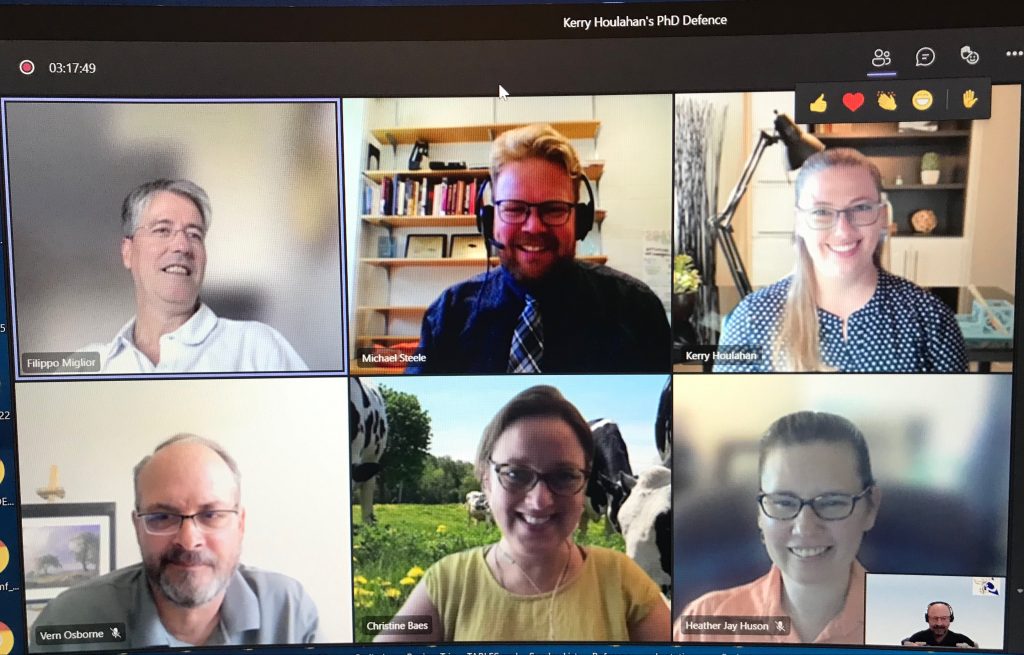
8 April 2021
Congratulations to PhD student Ivan Campos who won 1st place in the Creative Expression of Research Competition organized through the Department of Animal Biosciences at the University of Guelph
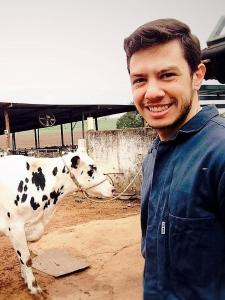
“My PhD research will help deliver breeding programs for selecting animals adapted to our changing climate.” – Ivan Campos
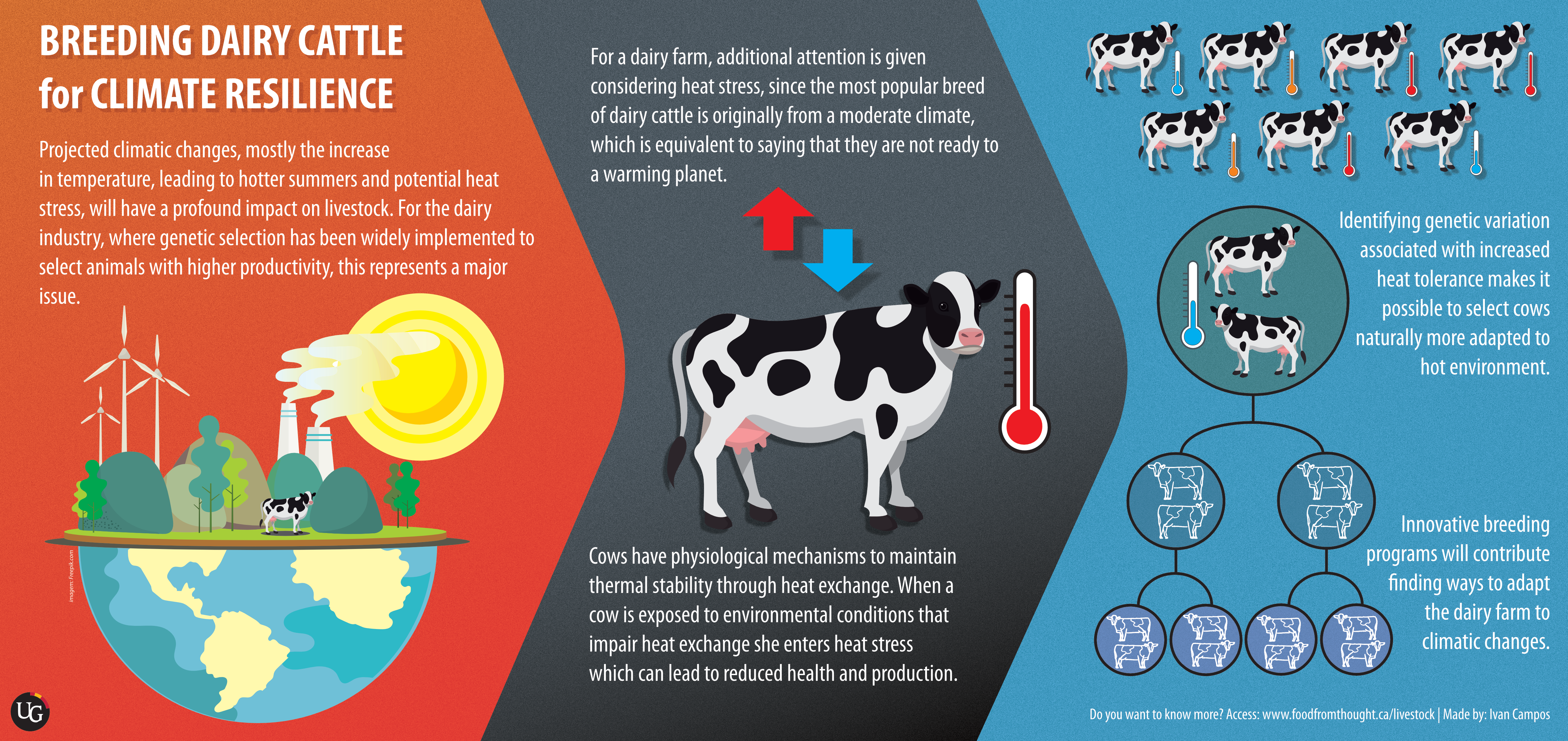
11 February 2021
Past week was the technical meeting of the Dairy Cattle Breeding & Genetics Committee (DCBGC). This group comes together (virtually these days) every 6 months to stimulate discussion and distribution of research results involving dairy cattle breeding and genetics within Canada.
In September 2020, Dr. Christine Baes had the pleasure to introduce the RDGP project and all its aspects to the stakeholders. Last week, many of the RDGP students took to the stage to introduce their research projects and present some preliminary results. The meeting had over 45 participants and led to fruitful discussion and exchange of ideas to the mutual benefit of research and industry partners.
A large part of the RDGP project covers health and a new team of graduate students explained their research plans for extending cow longevity (Elizah McFarland), standardizing calf health recording (Emma Hyland), developing a calf health index (Colin Lynch), and investigating genes involved in Johne’s disease (Aisha Fong). The other part focusses on feed efficiency and methane emissions building on from the previous Efficient Dairy Genome Project. This involved an overview of detailed work on evaluation of feed efficiency traits (Kerry Houlahan) and methane emission traits (Stephanie Kamalanathan – presented by Dr. Tatiane Chud). A new aspect that will be considered is the relationship between rumination patterns and feed efficiency (Lucas Lopes). Finally, Dr. Hinayah Oliveira presented a new approach from the research team to improve knowledge and genomic predictions using copy number variants for resilience indicator traits.
This is an excellent opportunity for researchers and graduate students to present their work to people directly involved in the industry. Thank you to the DCBGC for organizing and engaging with our students!
19 October 2020
Welcome to the official website of The Resilient Dairy Genome Project! This project officially launched in January 2020 and is led by Dr. Christine Baes, a research geneticist with expertise in the areas of quantitative genetics and statistical genomics as it relates to the genetic and genomic evaluation of livestock. Dr. Christine Baes is an Associate Professor at the University of Guelph who holds a Canada Research Chair in Livestock Genomics awarded by the Natural Sciences and Engineering Research Council of Canada. Together with co-leaders Drs. Ronaldo Cerri (University of British Columbia), Marc-André Sirard (Université Laval), and Paul Stothard (University of Alberta), she will lead the Resilient Dairy Genome Project to enhance Canadian dairy industry sustainability by integrating genomic approaches to improve dairy cattle resilience. This project is a follow-up to the Efficient Dairy Genome Project a previous successful Genome Canada funded project. The project will continue to focus on feed efficiency and methane emission traits in dairy cattle, but will now also incorporate traits related to fertility and disease resistance. They will work together with a large team including over 30 co-investigators, collaborators and end-users, an unknown number of students and over 35 international partner organizations to develop genomic tools to select for more resilient dairy cows. By selecting for increased feed efficiency, reduced methane emissions, improved fertility and enhanced disease resistance, the dairy industry will be able to produce environmentally sustainable dairy products while maintaining production and enhancing fertility, health, and welfare – providing economic and social benefits for the Canadian dairy sector and society as a whole.
